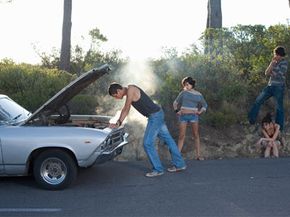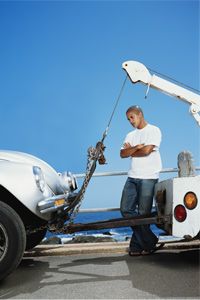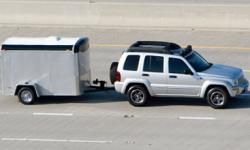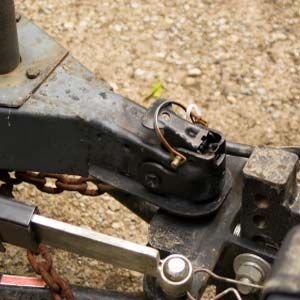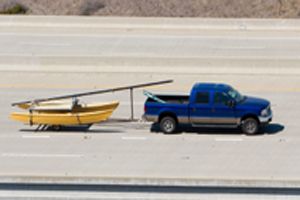If road tripping were an Olympic sport, you'd surely be a gold medalist in the event. You have the uncanny ability to pick the lane that will be best for traffic flow as well as a sort of sixth sense that lets you know when the highway patrol has the radar guns out. You have a stomach of iron that can withstand any amount of diner grub, fast food, pork rind or milkshake you throw at it. You close your eyes and instantly see a map of highways and back roads, and you can navigate local radio like a pro. Yes sir, when it comes to road tripping, nothing can break your stride toward success.
But there's one road trip situation that has the power to keep you up at nights, the way a formidable opponent might make a real athlete nervous. And that is when you decide to pull a trailer behind your vehicle. When you think about towing a trailer, all your road trip cool and swagger disappears as you consider the injury you might be doing to your beloved vehicle. You're worried about towing damage, and as a result, your road trip performance starts to slip. You start sleeping through the alarm on days that you'd hoped to get an early start, or you leave essential toiletries like contact solution behind in motel rooms. You get the shakes and can't even fold a map correctly.
Advertisement
You've got one eye permanently fixed on the trailer behind you and now you're coming in last place in this great road trip race. Is there anything that can save your performance? In this article, we'll consider how to get your game face back, so you can stare down the road safely, even if there's a trailer behind you.
